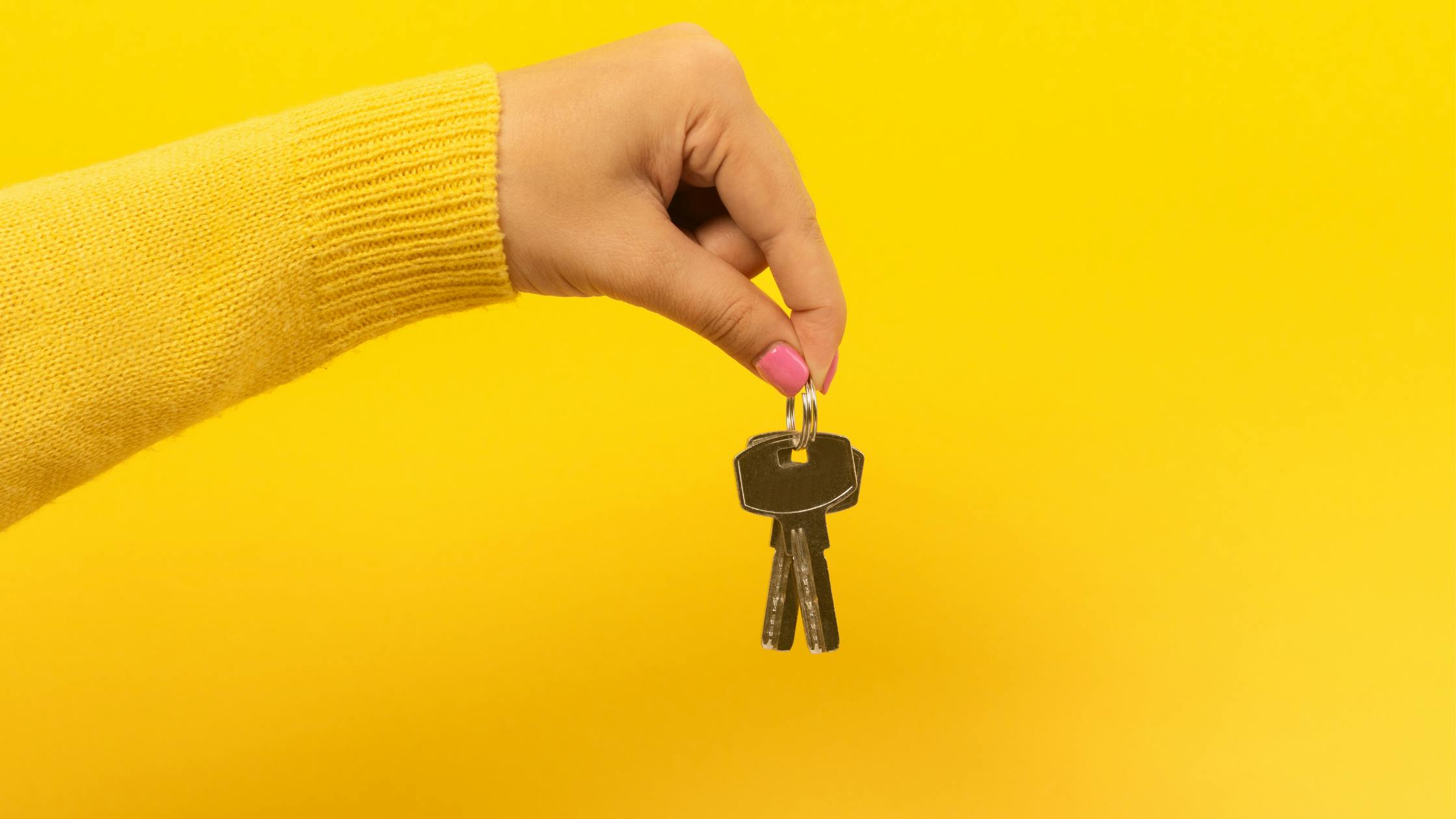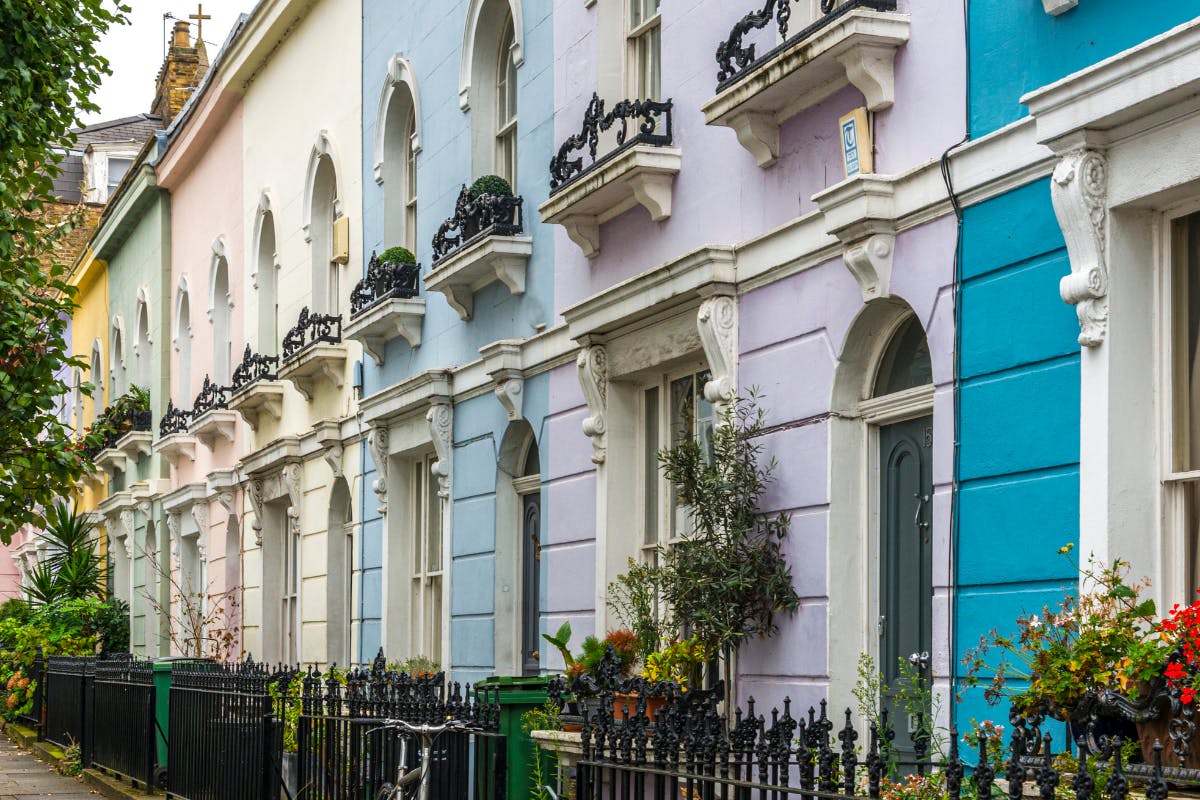What is a mortgage?
If you’d like to buy a home and you can’t afford to pay for it in cash, you may need a mortgage. But how do mortgages work? And what can stop you from getting one? Find out in this guide.
What is a mortgage?
A mortgage is a type of long-term loan used to buy property that a bank, building society or other lender offers you. You’ll usually pay it back monthly over 20 to 40 years, with interest. Unless you have enough cash to buy a home outright, you’ll usually need a mortgage to get on the property ladder.
What is the point of getting a mortgage?
A mortgage is a long-term loan that helps you buy a home or investment property. With the help of a mortgage, you only need to put down a percentage of the property’s value in cash, which is known as your deposit or downpayment. You’ll then borrow the rest and pay off the mortgage loan gradually through monthly payments - normally over 25-40 years.
The average house price in the UK is £267,500 and prices are expected to rise by as much as 4% by the end of 2025. Compare this to the average salary which is just under £35,000, it’s easy to see why buying a home without a mortgage can be a challenge - it’s over 7x the average salary!
On average our customers boost their buying power by £88,000!
As voted for by our customers for four years running! See how our award-winning service could make home happen for you by creating a free Tembo plan.
How do mortgages work?
The mortgage loan you borrow is spread over a set term, normally 25-40 years. Each month, you’ll pay back part of the outstanding loan until you have paid off the whole loan in full. Together with your deposit, the mortgage allows you to cover the total cost of purchasing a home. In return, the lender (often a bank or building society) will get added interest on top of your monthly repayments.
Let’s say you’re buying a home for £300,000 with a £30,000 deposit. You’d borrow the remaining £270,000 from a lender. This is repaid monthly, along with interest, over a set term.
But not all mortgages are the same - the amount you can borrow, how long your term is and the interest rate you get (including options like fixed-rate or variable-rate deals) all vary from one borrower to the next. This is why understanding your mortgage affordability before applying for a mortgage is important. So you can understand your options and discover ways you could increase your buying power, or access lower interest rates.
See what you could be offered without applying by creating a free Tembo plan here
Do you need a mortgage on a house?
Technically, no you don’t need a mortgage on a house. It is possible to buy a house without a mortgage if you have the cash to pay for it in full. Buying a house outright in cash can save thousands of pounds in interest, but this does mean you’ll need potentially hundreds of thousands of pounds saved up to do this.
There are other reasons you might buy a house without a mortgage. You might not be eligible for a standard mortgage that meets your needs, for example. In which case you may be better suited to a shared ownership scheme or part buy part rent scheme. Or you may need to find a specialist mortgage if you’re self-employed, you have complex income or you are a foreign national.
Discover your mortgage options without applying
Create a free Tembo plan to see your true buying budget, all without applying. Plus there’s no credit check involved.
Is a mortgage a good or bad thing?
While a mortgage is a loan, it can be a good thing if you are unable to buy a home outright. A mortgage allows you to purchase a home without having the full property price saved up - instead, you’ll put down a portion of the property value as a down payment (usually around 10% of the purchase price), and the rest will be made up by your mortgage loan.
However, some people choose to take out a mortgage even if they have the cash to buy a property in full. There are lots of reasons you might do this, but one of the most common benefits is increased liquidity (or cash flow). A mortgage lets you pay off your home gradually, leaving you with more money to spend on day-to-day expenses and other savings goals.
Some people take out a mortgage so they can have more money available to invest in stocks and shares, buy-to-let properties, and other investments. Even the super-rich take out mortgages on multi-million-pound homes, even though they could afford to be mortgage-free.
However, keep in mind that like any loan, your mortgage needs to be repaid. If you cannot make your mortgage payments, your home may be repossessed (although there are options you can explore with your lender before this happens). This is why understanding your budget and mortgage affordability is important, as you don’t want to stretch yourself beyond your means!
Perfect for you: Can I get a mortgage?
What can stop you from getting a mortgage?
There are a few things that can stop you from being eligible for a mortgage. Not passing the lender’s affordability criteria or meeting the eligibility criteria for that specific mortgage product is one reason. But if you have a low credit score, large outstanding debts, a very low deposit or another affordability factor like you’re self-employed, this can also make it harder to get a mortgage (but not necessarily impossible!).
Working with an expert and trusted mortgage broker like Tembo can help you find a mortgage you are eligible for, as they’ll be able to search mortgages from different lenders - and potentially specialist options if they are experts in affordability-boosting schemes.
Not passing affordability criteria
Each lender will have a set of affordability criteria that they’ll use to decide whether to approve a mortgage application and how much to lend. If you fail a lender’s affordability checks, your application will usually be rejected. Getting rejected can be disheartening, but don’t give up. Affordability criteria can vary dramatically from one lender to the next, so getting turned down once doesn’t mean you’ll never get a mortgage!
Too many mortgage applications in a short space of time can put lenders off, though, so it’s a good idea to speak to a mortgage specialist before applying. They’ll help you find the lenders most likely to give you a ‘yes’ - and could even find ways to boost your borrowing power.
Poor credit score
If you’ve got a bad credit score, you may find it harder to get a mortgage. But a poor credit history doesn’t mean you’ll automatically be rejected. Some lenders specialise in helping borrowers with adverse credit, plus there are ways to improve your score to help your mortgage affordability.
To learn more, take a look at our What is an adverse credit mortgage guide.
Large outstanding debts
If you have a lot of debt already, lenders may be reluctant to give you a mortgage due to concerns that you’ll be unable to pay them back. You can increase your chances of getting a mortgage by paying off as much debt as possible before submitting your application or having a record of paying off your loan repayments in time and in full. This helps to show you are able to manage loans.
Low deposit
If you’re struggling to save a deposit, you may find it harder to get a mortgage. Lenders usually want borrowers to have a deposit of at least 10% to 20%. It might still be possible to get a mortgage even if you have a small deposit or even no deposit at all!
To see what some of the options are, take a look at our guide to low or no deposit mortgages, or create a free Tembo plan.
You’re self-employed
If you’re self-employed, this can make it harder to get a mortgage, even if you have a higher income than you might’ve done in previous employment! One of the biggest obstacles that self-employed borrowers face is proving their income, as you often need to have evidence of 2-3 years’ worth of accounts. But there are some specialist mortgages for those with self-employed or complex income.
For a more detailed breakdown, take a look at our guide to what can stop you from getting a mortgage.
Does a mortgage hurt your credit?
A mortgage is probably the biggest loan you’ll take out in your life, which is why many people notice a drop in their credit score within weeks of being accepted for a mortgage. When you first take out a mortgage, credit referencing agencies don’t yet have data to show whether you’ll make your payments on time.
Your credit score is a reflection of how well you handle credit - so the good news is if you keep up with your mortgage payments your score should return to normal. In some cases, a mortgage can actually improve your credit score in the long run, as long as you’re a responsible borrower!
Start your journey to homeownership today
Make home happen with the UK’s Best Mortgage Broker on your side. Get started today by creating a free, personalised Tembo plan to discover all the ways you could buy or remortgage, including options you might never have heard of! Then, book in a quick and no-obligation call with our team.







